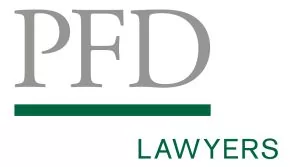In our practice, we are often asked about the scope of a clause included in most damage insurance policies. Unfortunately, a number of policyholders only become aware of it and its significance after damages have occurred and the settlement is far lower than expected.
Here, we explain the rule of proportionality in insurance and the impacts it can have on the amount paid by the insurer to cover damages.
The rule of proportionality applies in cases in which a policyholder's coverage does not extend to all the insured property referred to in the policy. The Civil Code of Québec stipulates:
2493. The insurer may not refuse to cover a risk for the sole reason that the amount of the coverage is less than the value of the insured property. In such a case, he is released by paying the amount of the coverage in the event of total loss or a proportional indemnity in the event of partial loss.
The rule is therefore aimed at what is known as underinsurance: when the amount of insurance is lower than the value of the insured property on the same day. In his treatise on non-marine insurance, Prof. Didier Lluelles writes: "La sous-assurance lors du sinistre peut résulter soit d'une sous-évaluation par l'assuré au moment du contrat, soit d'une variation à la hausse en cours de contrat. " ["When an incident occurs, underinsurance may be the result of either undervaluation by the insured at the time of the contract or an increase in the course of the contract."]
Generally speaking, insurance policies include a requirement that the insured amount must represent at least 80% of the value of the insured property at the time when damages occur. Should a policyholder fail to comply with this requirement, the amount paid by the insurer in the case of partial loss will be proportional to the insured amount.
Here is an example. A policyholder owns a building that she insured for a total amount of $500 000. The amount represents the cost of rebuilding and was determined several years ago, when the owner first took out the insurance policy. A fire causes $150 000 in damages. As it turns out, when the incident occurred, the building was actually valued at $750 000. The error stems from an inaccurate initial assessment and the fact that building costs have risen significantly over the years. The owner is therefore only entitled to $100 000 to cover the damages, despite the $500 000 she has in coverage and the $150 000 in total damages.
When a policyholder is underinsured, he may take action against his insurance broker if the broker failed in his or her duty to provide advice. However, since success is not guaranteed and this type of situation inevitably leads to significant delays and costs, it is preferable to maintain adequate insurance coverage and reassess it on a regular basis by conducting the evaluations that are required.
About Mackrell International - Canada - Prévost Fortin D'Aoust is a Quebec based business law firm with offices in Montreal, Saint-Jérôme, Boisbriand, Sainte-Agathe-des-Monts and Laval, and a member of Mackrell International. Mackrell International - Canada is comprised of four independent law firms in Alberta, British Columbia, Ontario and Quebec. Each firm is regionally based and well-connected in our communities, an advantage shared with our clients. With close relations amongst our Canadian member firms, we are committed to working with clients who have legal needs in multiple jurisdictions within Canada.
This article is intended to be an overview and is for informational purposes only.

